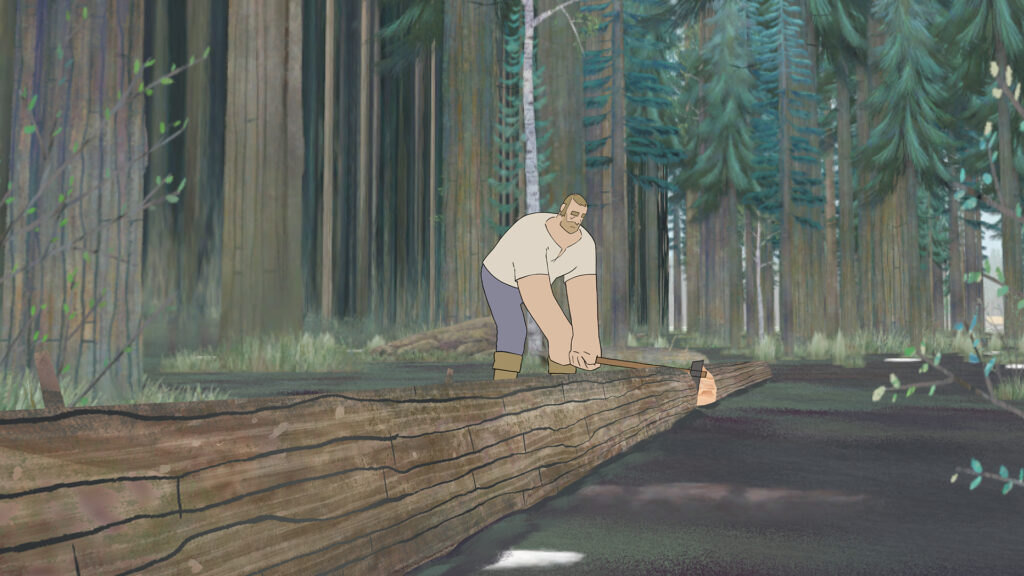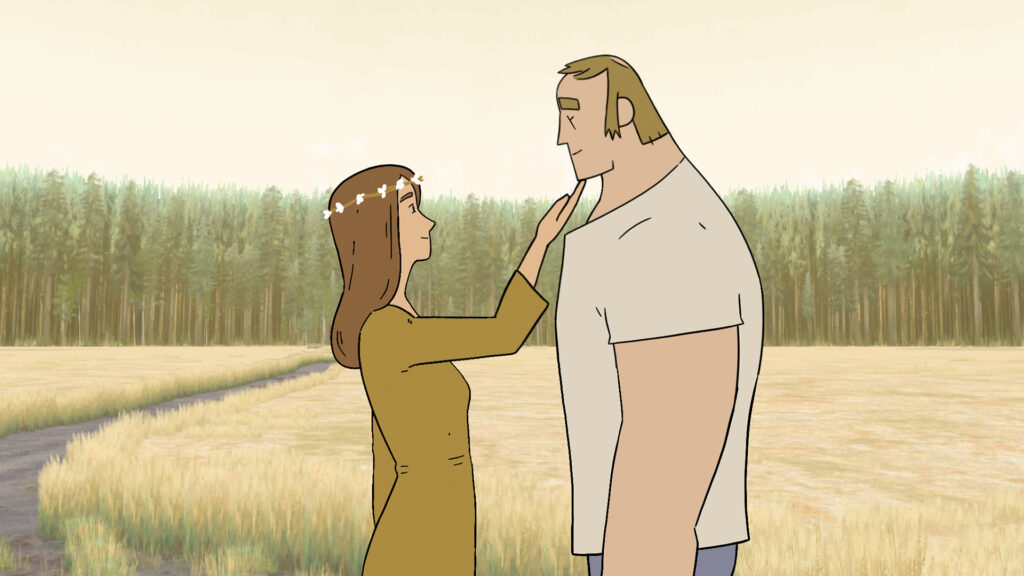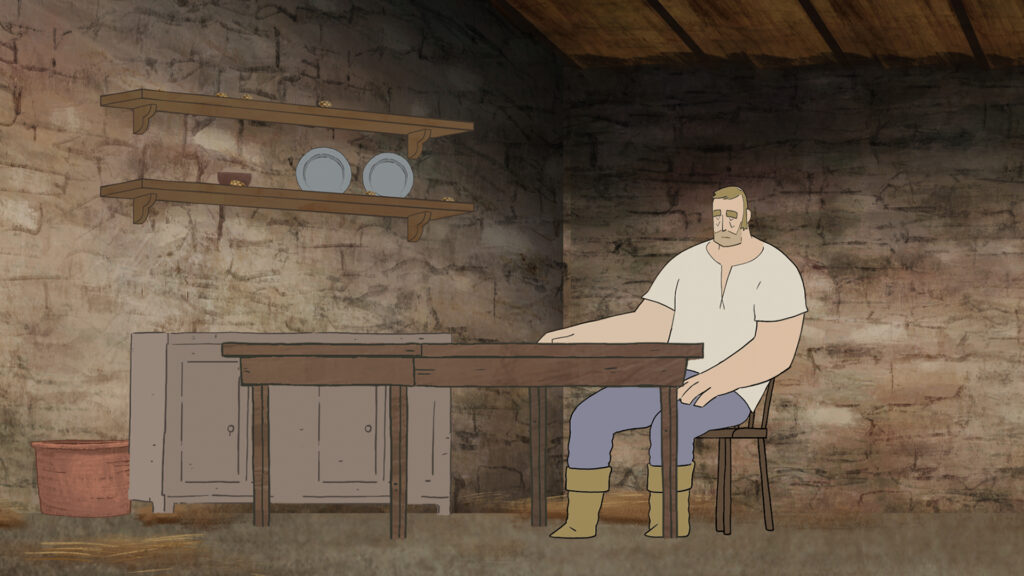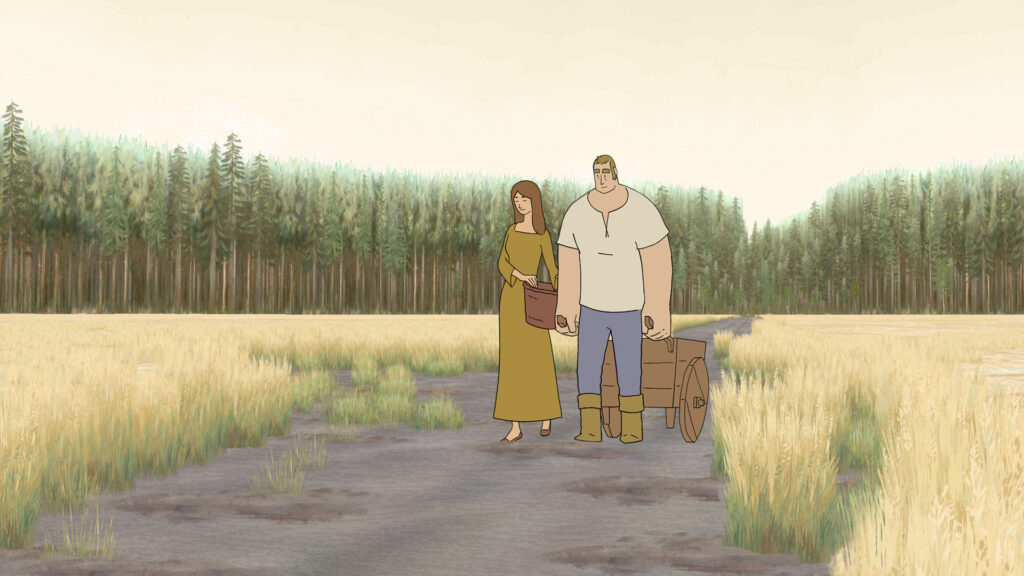Grief has a way of slowing everything down. Even the tiniest tasks, making tea, folding washing, can take on this weird, heavy significance. That’s the heart of Pine: A Story of Loss. You step into the life of a lonely woodworker, just trying to get through his days after his wife dies. It’s set in a small forest, and there’s no grand drama or epic twist here—just quiet moments of living and remembering.
The game starts in stillness. You fetch water, repair your roof, tend a veggie patch, all the simple, grounding things he does to keep moving forward. These aren’t flashy mechanics; you’ll swipe or trace your screen to complete each task. But somehow, every small action feels meaningful.
The clever part is how these everyday chores are interrupted. A ribbon caught on a fence or a butterfly drifting past triggers flashbacks to his life before. Through lovely little animations, you see their life together—replanting flowers she loved, carving her likeness into wood. The woodworker’s grief isn’t just something he feels; it’s in the things he does, turning memories into love and creativity.

Finding the Extraordinary in the Ordinary
Loss often feels both profound and painfully ordinary. That’s where Pine: A Story of Loss shines. The world doesn’t stop, even when it feels like yours has ended. Everything changes, yet nothing does, and life demands that we carry on. The game captures this balance perfectly.
The repetitive nature of daily tasks reflects the rhythms of grief: some days feel endless and heavy with emotion, while others fly by in a fog. Yet, in Pine, these routines never feel dull. Each movement is smooth and oddly soothing. Paired with a gentle, meditative soundtrack, the game keeps you grounded and holds you firmly in its grasp.
Then there are the flashbacks. They’re full of colour, standing out against the muted tones of the woodworker’s daily life. They’re small, personal moments that avoid being overly sentimental or melodramatic. It’s just love in the smallest and most ordinary ways. These moments also bring some variety to the gameplay, with little puzzles and challenges that feel just right. Not too much, not too little.

Some Sanding Necessary
The game does stumble here and there. The woodcarving mini-game, for example, can be a bit inconsistent. Sometimes, it finishes before you’ve really done much; other times, it feels almost annoyingly precise, and I did experience a few glitches with figure placement, too.
These aren’t that big of a deal, but in a game so minimal, the rough edges can stand out.

Why Pine Feels So Personal
What makes Pine stick with you is its honesty. It doesn’t try to hit you over the head with big, emotional moments. It just focuses on the little things: quiet routines, fleeting memories, and the way love lingers, even in the mundane.
For me, the quietest parts were the most powerful. Watching the woodworker sit alone, staring into the distance. It reminded me of those moments that come with grief when time seems to stretch, and you’re left alone with your thoughts. A scary thought, indeed. It’s rare for a game to feel this intimate, and that’s something that comes through from the creator’s own lived experience.

Final Thoughts
Pine: A Story of Loss shares the stillness and the weight of grief in a way that feels genuine. The gameplay is simple, the visuals understated, and the music quietly beautiful. It’s a short story full of heart, and I enjoyed my time with it.
Game: Pine: A Story of Loss
Genre: Indie, Narrative
Platform: iOS (also available on Android, Nintendo Switch and Steam on PC)
Dev & Pub: Made Up Games | Fellow Traveller
Release Date: Dec 13, 2024
TL;DR Review
Pine: A Story of Loss
Pine: A Story of Loss is a gentle, emotional game about losing a loved one. It's simple but beautifully made, and the way it handles grief feels incredibly human. Perfect for a single-sitting playthrough.




























































